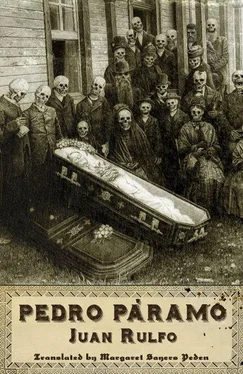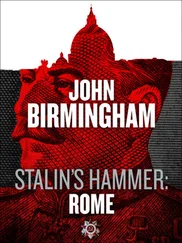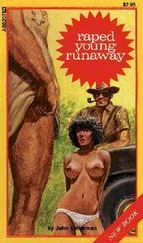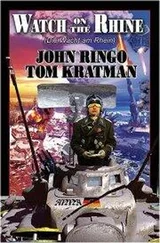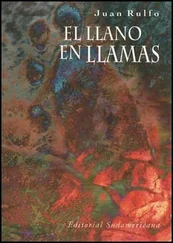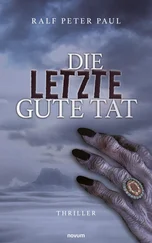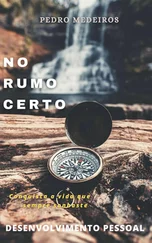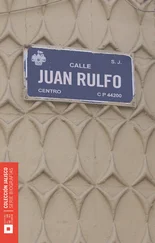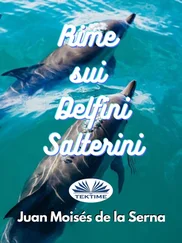“He said that was why he had come: to say he was sorry and to ask me to forgive him. I lay still in my bed, and I told him, The window is open.’ And he came in. The first thing he did was put his arms around me, as if that was his way of asking forgiveness for what he had done. And I smiled at him. I remembered what you had taught me: that we must never hate anyone. I smiled to let him know that, but then I realized that he couldn’t see my smile because it was so black that I couldn’t see him. I could only feel his body on top of me, and feel him beginning to do bad things to me.
“I thought he was going to kill me. That’s what I believed, Uncle. Then I stopped thinking at all, so I would be dead before he killed me. But I guess he didn’t dare.
“I knew he hadn’t when I opened my eyes and saw the morning light shining in the open window. Up till then, I felt that I had in fact died.”
“But you must have some way of being sure. His voice. Didn’t you recognize him by his voice?”
“I didn’t recognize him at all. All I knew about him was that he had killed my father. I had never seen him, and afterward I never saw him again. I couldn’t have faced him, Uncle.”
“But you knew who he was.”
“Yes. And what he was. And I know that by now he must be in the deepest pit of hell. I prayed to all the saints with all my heart and soul.”
“Don’t be too sure of that, my child. Who knows how many people are praying for him! You are alone. One prayer against thousands. And among them, some much more intense than yours — like his father’s.”
He was about to say: “And anyway, I have pardoned him.” But he only thought it. He did not want to add hurt to the girl’s already broken spirit. Instead, he took her arm and said: “Let us give thanks to the Lord our God, Who has taken him from this earth where he caused such harm; what does it matter if He lifted him to His heaven?”
A horse galloped by the place where the main street crosses the road to Contla. No one saw it. Nevertheless, a woman waiting on the outskirts of the village told that she had seen the horse, and that its front legs were buckled as if about to roll head over hooves. She recognized it as Miguel Paramo’s chestnut stallion. The thought had even crossed her mind that the animal was going to break its neck. Then she saw it regain its footing and without any interruption in stride race off with its head twisted back, as if frightened by something it had left behind.
That story reached the Media Luna on the night of the burial, as the men were resting after the long walk back from the cemetery.
They were talking, as people talk everywhere before turning in.
“That death pained me in more ways than one,” said Terencio Lubianes. “My shoulders are still sore.”
“Mine, too,” said his brother Ubillado. “And my bunions must have swelled an inch. All because the patron wanted us to wear shoes. You’d have thought it was a holy day, right, Toribio?”
“What do you want me to say? I think it was none too soon he died.”
In a few days there was more news from Contla. It came with the latest ox cart.
“They’re saying that his spirit is wandering over there. They’ve seen it rapping at the window of a lady friend. It was just like him. Chaps and all.”
“And do you think that don Pedro, with that disposition of his, would allow his son to keep calling on the women? I can just imagine what he’d say if he found out: All right,’ he’d say.
’You’re dead now. You keep to your grave. And leave the affairs to us.’ And if he caught him wandering around, you can bet he’d put him back in the ground for good.”
“You’re right about that, Isaias. That old man doesn’t put up with much.”
The driver went on his way. “I’m just telling you what was told me.”
Shooting stars. They fell as if the sky were raining fire.
“Look at that,” said Terencio. “Please look at the show they’re putting on up there.”
“Must be celebrating Miguelito’s arrival,” Jesus put in.
You don’t think it’s a bad omen?”
“Bad for who?”
“Maybe your sister’s lonesome and wants him back.”
“Who’re you talking to?”
“To you.”
“It’s time to go, boys. We’ve traveled a long road today, and we have to be up early tomorrow.”
And they faded into the night like shadows.
Shooting stars. One by one, the lights in Comala went out.
Then the sky took over the night.
Father Renteria tossed and turned in his bed, unable to sleep.
It’s all my fault, he told himself. Everything that’s happening. Because I’m afraid to offend the people who provide for me. It’s true; I owe them my livelihood. I get nothing from the poor, and God knows prayers don’t fill a stomach. That’s how it’s been up to now.
And we’re seeing the consequences. All my fault. I have betrayed those who love me and who have put their faith in me and come to me to intercede on their behalf with God.
What has their faith won them? Heaven? Or the purification of their souls? And why purify their souls anyway, when at the last moment… I will never forget Maria Dyada’s face when she came to ask me to save her sister Eduviges:
She always served her fellowman. She gave them everything she had. She even gave them sons. All of them. And took the infants to their fathers to be recognized. But none of them wanted to. Then she told them, ‘In that case, I’ll be the father as well, even though fate chose me to be the mother.’ Everyone took advantage of her hospitality and her good nature; she never wanted to offend, or set anyone against her.”
“She took her own life. She acted against the will of God.”
“She had no choice. That was another thing she did out of the goodness of her heart.”
“She fell short at the last hour,” that’s what I told Maria Dyada.
“At the last minute. So many good acts stored up for her salvation, and then to lose them like that, all at once!”
“But she didn’t lose them. She died of her sorrows. And sorrow… You once told us something about sorrow that I can’t remember now. It was because of her sorrows she went away. And died choking on her own blood. I can still see how she looked. That face was the saddest face I have ever seen on a human.”
“Perhaps with many prayers… ”
“We’re already saying many prayers, Father.”
“I mean maybe, just perhaps, with Gregorian masses. But for that we would need help, have to bring priests here. And that costs money.”
And there before my eyes was the face of Maria Dyada, a poor woman still ripe with children.
“I don’t have money. You know that, Father.”
“Let’s leave things as they are. Let us put our hope in God.”
“Yes, Father.”
Why did she look courageous in her resignation? And what would it have cost him to grant pardon when it was so easy to say a word or two — or a hundred if a hundred were needed to save a soul? What did he know of heaven and hell? And yet even an old priest buried in a nameless town knew who had deserved heaven. He knew the roll. He began to run through the list of saints in the Catholic pantheon, beginning with the saints for each day of the calendar: “Saint Nunilona, virgin and martyr; Anercio, bishop; Saints Salome, widow, and Alodia-or-Elodia and Nulina, virgins; Cordula and Donate.” And on down the line. He was drifting off to sleep when he sat up straight in his bed. “Here I am reciting the saints as if I were counting sheep.”
He went outside and looked at the sky. It was raining stars. He was sorry, because he would rather have seen a tranquil sky. He heard roosters crowing. He felt the mantle of night covering the earth. The earth, “this vale of tears.”
Читать дальше
